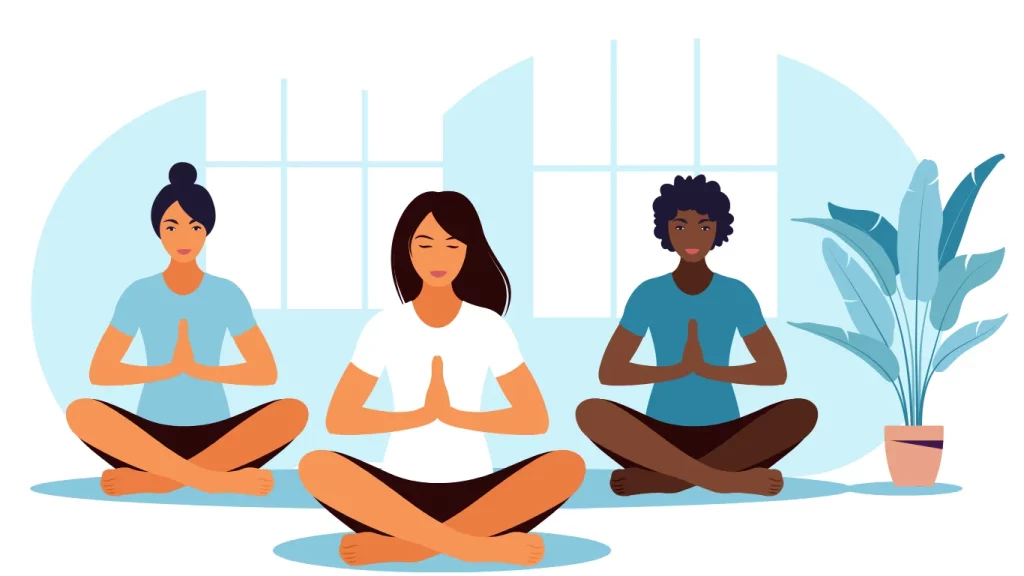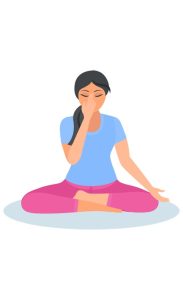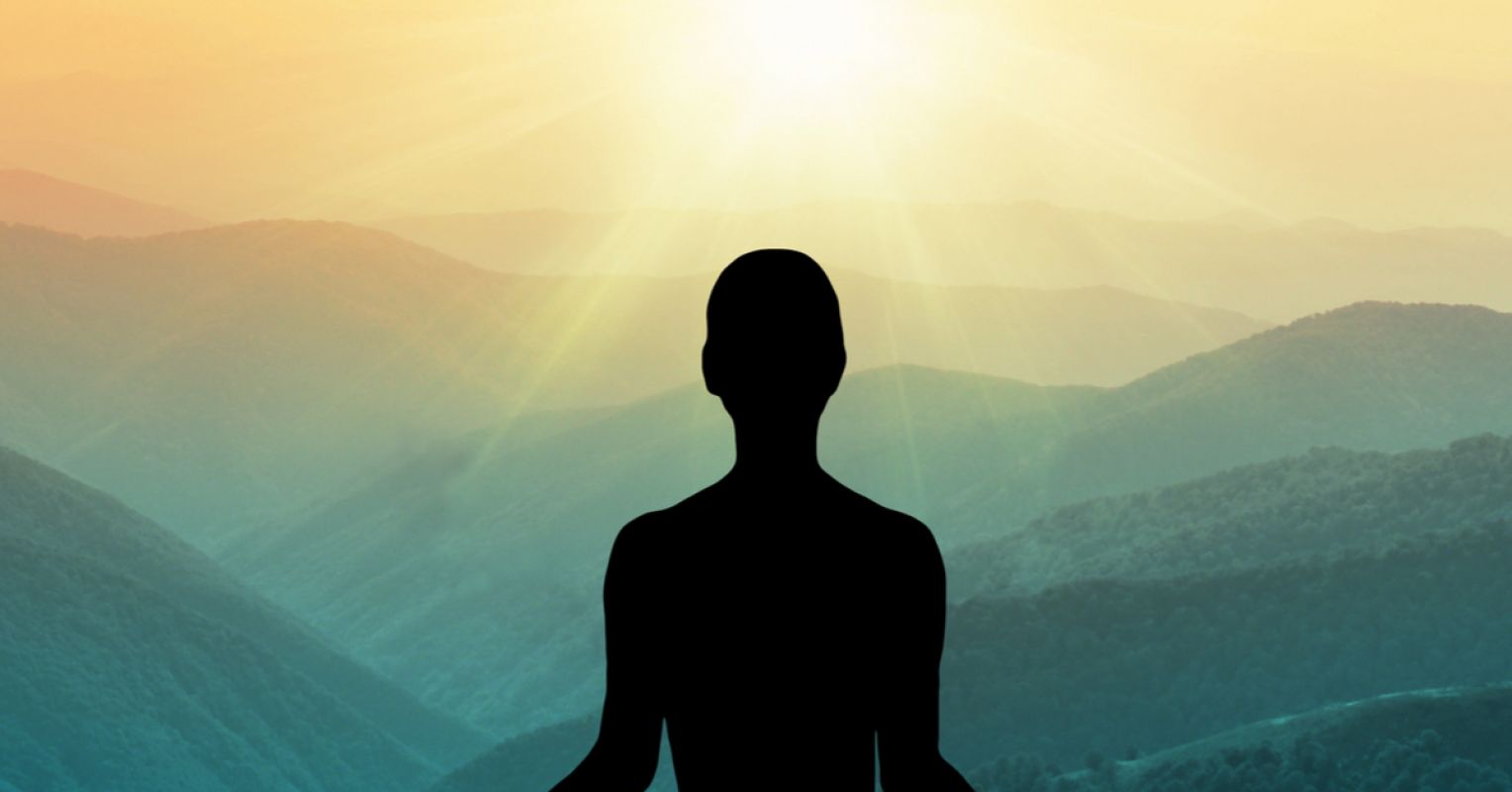Mindfulness Meditation is the discipline of being fully present at the moment, which trains us to be more attentive throughout the day, especially in stressful times. The Advantages of Combining Meditation and Yoga: it can help you get started with meditation and also helps one to reap the physical and mental benefits of both practices.
Mindfulness Meditation
The next most common type of meditation is mindfulness, which consists of sitting, paying attention to your breath, and bringing awareness to the sensations, emotions, and thoughts of the present moment without dwelling on the future or past. It may help-
| Reduce stress or stress-induced inflammation |
| Reduce anxiety symptoms of depression |
| Increase self-awareness |
| Enhance memory and attention to alleviate Chronic pain |
| Enhance sleep |
| Reduce blood pressure |
Yoga Is Beneficial
Yoga, which is essentially breathwork linked to physical postures (or asanas), has also been extensively researched for its mind-body benefits.
| Increase adaptability |
| Enhance balance |
| Boost energy improve sleep lower blood pressure |
| Increase strength |
| Decrease body fat |
| Reduce stress reduce anxiety |
| Ease chronic pain |
How to Meditate While Doing Yoga
Yoga incorporates meditation elements such as a connection between mind, body, and breath, as well as an emphasis on being present on the mat. A few simple modifications could transform it into a type of moving meditation. Being mindful and aware of movement without a goal or destination constitutes a moving meditation.
Making yoga into a form of moving meditation entails enjoying the sensations in every little movement and every muscle that fires at any given time. It’s not about nailing the posture or planning your next move.

Allow your breath to guide you: Breath is such an important part of yoga. It’s what makes many forms of yoga somewhat meditative in the first place.
Ujjayi Breath

Try to find your Ujjayi breath (also known as “ocean breath” or “victorious breath”), in which you inhale and exhale through your nose while keeping your lips closed and giving yourself a slight push in the back of your throat.
It sounds like the haah sound you make when you fog up a mirror. Begin with an exhale, and then match each pose to your breath: but feel free to hold poses for several breaths. Exhale slowly and try to let go of any thoughts or feelings that are no longer serving you.
Recognize and then let go of anxious thoughts
It’s natural for one’s mind to wander, and that’s perfectly fine. Following this, allow anxiety to rise to the surface. Don’t forget to recognize and release each anxious thought as you exhale. You’ll definitely reap the benefits as long as you make an effort to live in the present moment and honor your body’s needs.




